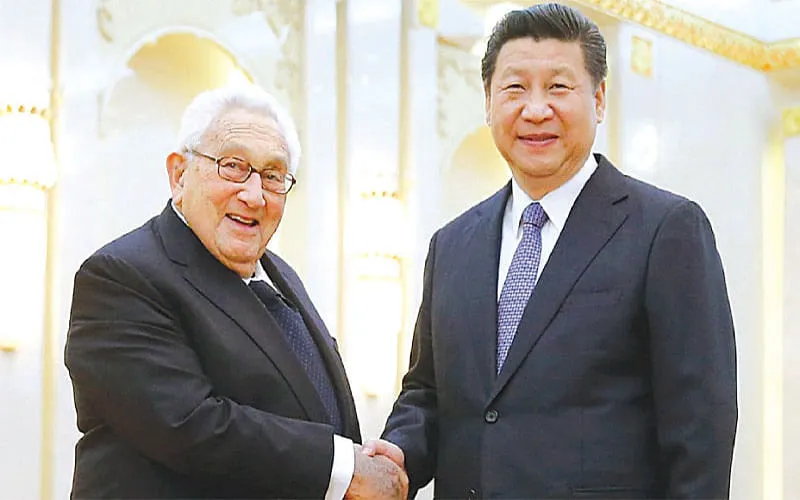The “third in-person Quad Leaders’ summit” convened in Japan on May 20. The summit was to be held in Australia which currently heads the group but that could not be so because US President Joe Biden had to curtail his visit to the region. This was because of his domestic pre-occupations arising out of the political crisis relating to the need to raise the country’s debt ceiling in order to avoid a default. The Republican party is being difficult and hence Biden could only afford to be out of Washington for a couple of days. He went to Japan to participate in the G7 meeting. In an extra-ordinary gesture, the Australians agreed to host the Quad summit there instead of insisting that it be postponed to a later date to be convened in Canberra.
This was wise and pragmatic of Australian Prime Minister Anthony Albanese for the Quad group which consists of US, Japan, India and Australia has to act purposefully and speedily to contain China which is making headway in the Indo-Pacific region. The raison d’etre of the group is to prevent Chinese inroads in the Indo-Pacific. That threatens the interests of all four states. By ensuring that the summit was not delayed the group signaled to Indo-Pacific countries that it would not let protocol or domestic difficulties stand in the way of important decisions. That stated, the fact is that the unity of Chinese decision-making structures under the supreme leadership of President Xi Jinping in contrast to the political polarization and disarray in the US cannot but in itself convey a message to Indo-Pacific countries.
That signal is that China is a rising and confident power which can be relied upon whereas the world’s pre-eminent state is a deeply divided polity and society. That inevitably raises the issue of the reliability of US decisions. Indeed, the international system rests on the twin pillars of reliability and predictability of decisions taken by states. That does not mean that countries cannot and do not change their positions if their interests demand that they do so but such changes are never lightly made. It is because of this factor that new governments which succeed previous administrations stand by their predecessor’s decisions and agreements even if they may not like them. This is true in bilateral settings but even more so in the case of multilateral and global agreements.
Over the past decade the US political class has shown that it does not follow the time-honoured practice so that the international community can have a degree of certainty about where the country stands. This is all the more essential when the international community is dealing with environmental crises and also geo-political issues. Two examples can be cited. The first relates to climate change and the second to the Iran-US nuclear deal. In both cases soon after taking over as President in January 2017 Donald Trump dumped the policies and the agreements reached by his predecessor Barack Obama. He went back on the Paris Accords relating to climate change and also the nuclear deal which had the seal of approval of other P5 countries and Germany. President Joe Biden took the US back to the Paris Accords immediately after assuming office in January 2021 but the Iran nuclear deal is still stuck in on-off US-Iran negotiations.
It is important for all the Quad countries but especially India to carefully and independently assess how much reliability are the Indo-Pacific countries placing on the group’s decisions because of divisions in the US. Why ‘especially’ India? This is because Japan and Australia are long standing US allies and have little scope to truly chart policies which can radically depart from US positions. India is in a different category for it has never given up its strategic autonomy. It has shown an adherence to this principle during the course of the Russia’s Ukraine war.
It can be argued that the entire US class accepts that an aggressive China is taking deliberate steps to undermine American primacy. Hence, Indo-Pacific countries would have the assurance that the US will not abandon the region for its engagement with the Indo-Pacific region is in its vital self-interest, especially in the area of security. It is perhaps for this reason that Papua New Guinea has entered into an important defense and security agreement with the US on May 22. That stated, doubts about US reliability and, as it is the most important Quad country that of the group itself, will continue to linger in the minds of Indo-Pacific countries in all the three sub regions of the area: the northern Pacific and its associated seas, south Pacific and the Indian Ocean rim.
It is therefore essential for Quad to ensure the timely implementation of its decisions which are contained in the Leaders Statement which came out at the summit’s conclusion. The Leader’s also came out with a vision statement which emphasized their commitment to a free and inclusive region where the sovereignty of Indo-Pacific countries was respected. This was no doubt a reference to China which has expanded the foot print of its Belt and Road Initiative through the Indo-Pacific and is seeking to take up infrastructure projects in the region. More than the eloquence of the vision statement what the Indo-Pacific countries will look for are the timely implementation of projects relating to connectivity, clean energy, health care, education and in containing the impact of climate change which poses an existential challenge especially for Indo-Pacific Island countries. That is where Quad will have to deliver if it really wishes to successfully contain the Chinese challenge.
Disclaimer: The views and opinions expressed in this article are the personal opinions of the author. The facts, analysis, assumptions and perspective appearing in the article do not reflect the views of GK.







